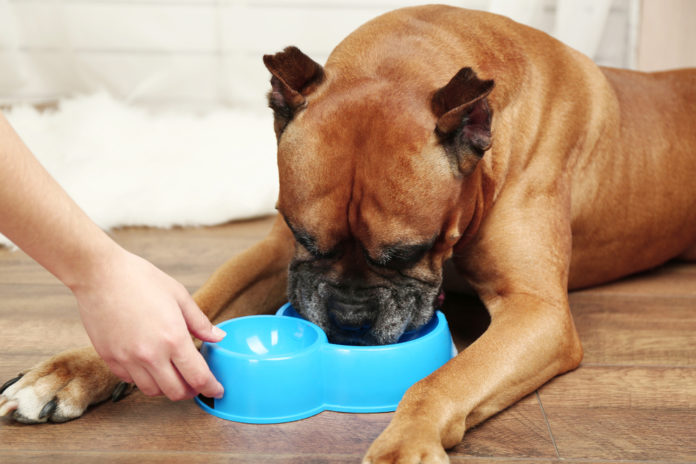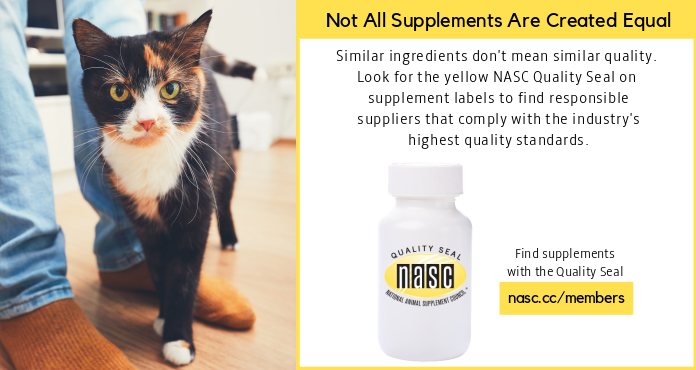Common supplements for dogs and cats

A look at some of the most common supplements for dogs and cats and how to select the right ones for your animal companions.
Even if you’re feeding your dog or cat the best food on the market, he’s likely to benefit from supplements to help optimize his nutrition, or help with an issue unrelated to diet. If you’re not sure where to start, here are a few common supplements that tend to benefit most dogs or cats at some point in their lives:
Multivitamins: While good quality pet foods are formulated to provide a complete and balanced diet, a multivitamin could help ensure your dog or cat gets the very best nutrition. If you feed a home-prepared diet, he is certainly receiving high quality whole foods but may be missing out on essential micronutrients. Multivitamin supplements contain important vitamins and minerals that can complement his diet, but won’t make up for poor nutrition.
Joint supplements: As your animal ages, you may begin to notice behaviors that suggest he has joint issues; he may get up more slowly, have difficulty navigating stairs, or is stiff when he moves. Daily joint supplements can be started early in life and may help stack the odds in his favor as he ages. Common ingredients include glucosamine, chondroitin and hyaluronic acid to help lubricate and benefit the joints and maintain the health of soft tissue, along with methylsulfonylmethane (MSM) and herbs such as turmeric, Boswellia and yucca to help with age-related discomfort.
Essential fatty acids (EFAs): Every mammal needs EFAs, fat-carried nutrients that affect everything from proper organ function to healthy skin and coat. Omega-3s for animals are derived mostly from fish oil and flaxseed oil, while Omega-6s are available from many vegetable sources. Even animals that show no obvious signs of an EFA deficiency will often experience improved vitality and appearance when an EFA supplement is added.
Antioxidants: These play an important role in helping to neutralize the damaging effects of free radicals; these unstable molecules produced by the body can lead to chronic inflammation and degenerative changes associated with aging. Antioxidants can help protect your dog or cat against cell damage and contribute to disease prevention. Common antioxidants for animals include vitamins A, C and E, zinc, selenium, coenzyme-Q10 and lycopene.
Probiotics: The good bacteria in probiotics can help get your animal’s gut health back on track. They are measured in colony-forming units (CFUs) and work best when given in sufficiently large numbers, usually in the billions of CFUs per administration. Adding probiotics alone may help improve your dog or cat’s gut bacteria, they may have the greatest effect when paired with prebiotics, carbohydrate-rich plant-based fibers that feed probiotics.
Finally, remember to look for the NASC Quality Seal when buying supplements for your animal. This tells you the product comes from a responsible supplier that has passed a comprehensive facility audit, and that maintains ongoing compliance with NASC’s rigorous quality standards, which include strict guidelines for product quality assurance, adverse event reporting and labeling standards. Visit nasc.cc/members for a complete list of NASC member companies that have earned the Quality Seal.




